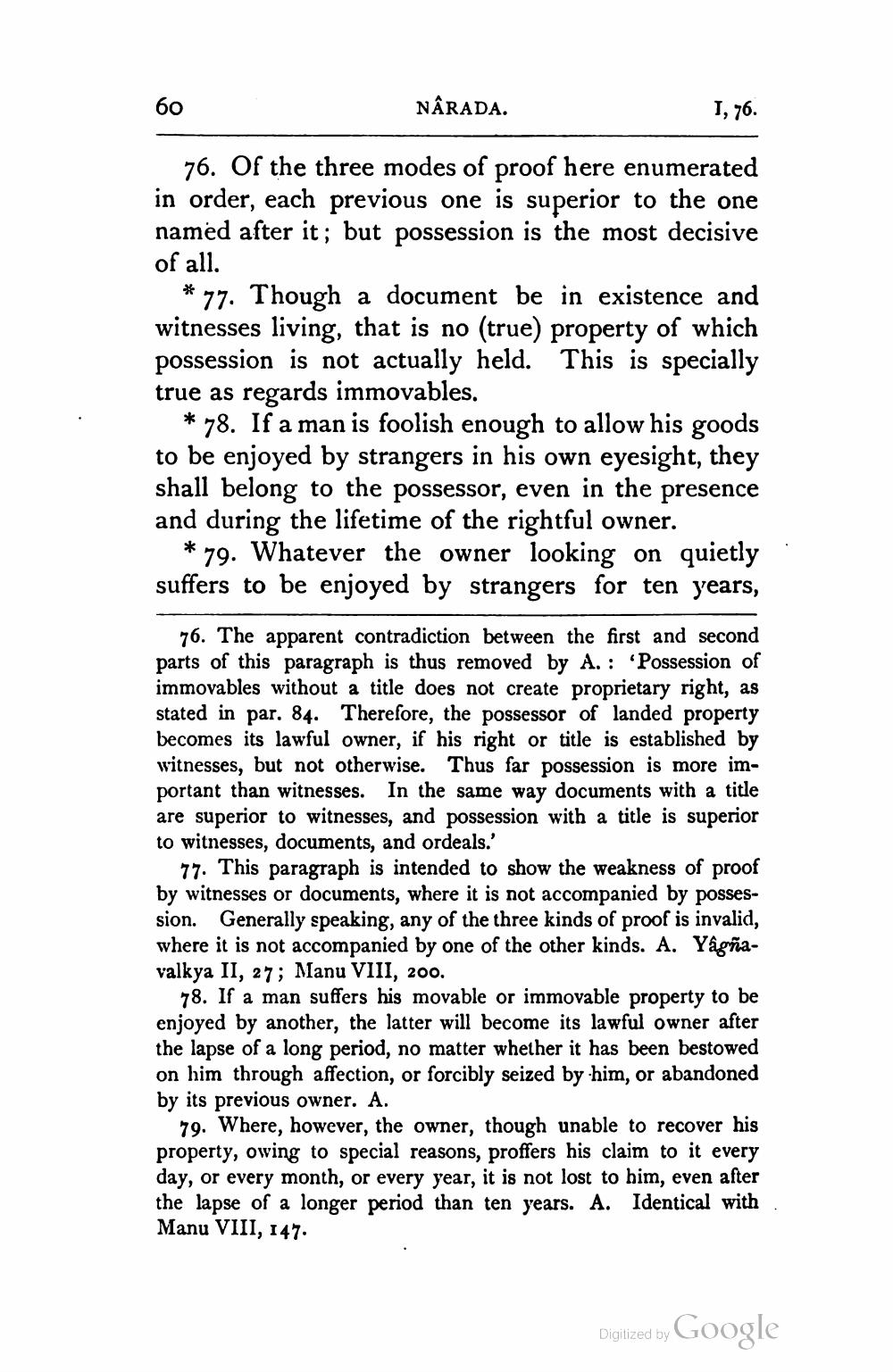________________
60
NÂRADA.
1, 76.
76. Of the three modes of proof here enumerated in order, each previous one is superior to the one named after it; but possession is the most decisive of all.
*77. Though a document be in existence and witnesses living, that is no (true) property of which possession is not actually held. This is specially true as regards immovables.
*78. If a man is foolish enough to allow his goods to be enjoyed by strangers in his own eyesight, they shall belong to the possessor, even in the presence and during the lifetime of the rightful owner.
*79. Whatever the owner looking on quietly suffers to be enjoyed by strangers for ten years,
76. The apparent contradiction between the first and second parts of this paragraph is thus removed by A.: "Possession of immovables without a title does not create proprietary right, as stated in par. 84. Therefore, the possessor of landed property becomes its lawful owner, if his right or title is established by witnesses, but not otherwise. Thus far possession is more important than witnesses. In the same way documents with a title are superior to witnesses, and possession with a title is superior to witnesses, documents, and ordeals.'
77. This paragraph is intended to show the weakness of proof by witnesses or documents, where it is not accompanied by possession. Generally speaking, any of the three kinds of proof is invalid, where it is not accompanied by one of the other kinds. A. Yâgñavalkya II, 27; Manu VIII, 200.
78. If a man suffers his movable or immovable property to be enjoyed by another, the latter will become its lawful owner after the lapse of a long period, no matter whether it has been bestowed on him through affection, or forcibly seized by him, or abandoned by its previous owner. A.
79. Where, however, the owner, though unable to recover his property, owing to special reasons, proffers his claim to it every day, or every month, or every year, it is not lost to him, even after the lapse of a longer period than ten years. A. Identical with Manu VIII, 147.
Digitized by Google




